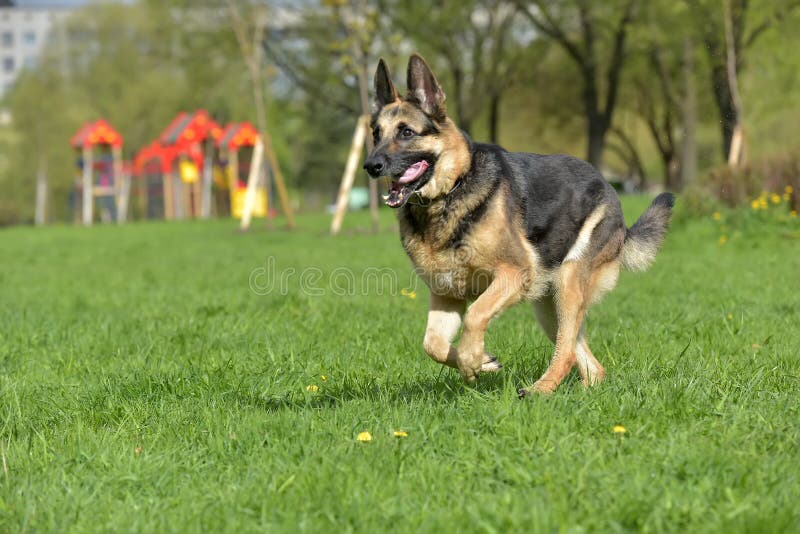German Shepherds have always been the epitome of loyalty, intelligence, and strength. But have you ever wondered about the oldest German Shepherd ever recorded? Well, buckle up, because we're about to take a deep dive into the world of these incredible canines, exploring their history, lifespan, and the factors that contribute to their longevity.
Now, if you're anything like me, you probably picture German Shepherds as those fierce yet loving pups that guard homes, sniff out trouble, or even star in movies. But did you know that some of these dogs have lived way beyond their expected years, breaking records and hearts alike? Let’s get into it, shall we?
As we explore the life and times of the oldest German Shepherd, we'll uncover fascinating facts, debunk myths, and provide you with actionable tips to help your furry friend live a longer, healthier life. So, whether you're a proud German Shepherd owner or just a dog lover at heart, this article’s got something for everyone.
Read also:Is Boneyard A True Story Unraveling The Mystery Behind The Blockbuster Thriller
Understanding the Lifespan of German Shepherds
Let’s kick things off by talking about the average lifespan of German Shepherds. Typically, these majestic dogs live anywhere from 9 to 13 years. But hey, that doesn’t mean they can’t surprise us, right? The oldest German Shepherd on record lived a whopping 19 years, defying all odds and proving that with the right care, these pups can stick around for a long time.
So, what factors play into determining how long your German Shepherd might live? Genetics, diet, exercise, and overall healthcare all come into play. And while we can’t control genetics, we sure can influence the rest. Keep reading to find out how you can maximize your pup’s lifespan.
Factors Influencing Longevity in German Shepherds
When it comes to the longevity of German Shepherds, several factors come into play. Let’s break them down one by one:
- Genetics: Some dogs are just born with the right genetic makeup to live longer. It’s like winning the lottery, but for dogs.
- Diet: A balanced diet rich in nutrients is essential. Think of it as fuel for their bodies and minds.
- Exercise: Regular physical activity keeps them fit and mentally stimulated. No lazy bones allowed!
- Veterinary Care: Regular check-ups and vaccinations are non-negotiable. Prevention is always better than cure.
By paying attention to these factors, you’re giving your German Shepherd the best shot at a long, healthy life. Simple, right?
Oldest German Shepherd on Record
Now, let’s talk about the star of the show – the oldest German Shepherd ever recorded. Her name was Belka, and she lived a remarkable 19 years. Born in 1996, Belka spent her life in a loving home in Germany, where she was treated like royalty. Her owner attributed her longevity to a strict diet, plenty of exercise, and lots of love.
Belka’s story is proof that with the right care, German Shepherds can live well beyond their average lifespan. It’s stories like hers that inspire us to take better care of our furry friends.
Read also:Discover The Enchanting Beauty Of Ta Brunswick Ga A Hidden Gem In Georgia
Belka's Daily Routine
Belka’s daily routine was nothing short of impressive. She started her day with a brisk walk, followed by a hearty breakfast. Afternoons were reserved for playtime and naps, while evenings were all about quality time with her family. This routine, combined with regular vet visits, kept her in tip-top shape.
Common Health Issues in German Shepherds
While German Shepherds are generally healthy dogs, they are prone to certain health issues that can affect their lifespan. These include:
- Hip Dysplasia: A common condition where the hip joint doesn’t develop properly, leading to arthritis.
- Elbow Dysplasia: Similar to hip dysplasia, but affecting the elbows.
- Degenerative Myelopathy: A progressive disease that affects the spinal cord, leading to paralysis.
- Allergies: German Shepherds are prone to skin allergies, which can cause discomfort and irritation.
By staying informed about these conditions and working closely with your vet, you can help your German Shepherd avoid or manage these issues.
Tips for Maximizing Your German Shepherd's Lifespan
Ready to give your German Shepherd the gift of a longer life? Here are some tips to help you do just that:
- Feed Them Right: High-quality dog food that meets their nutritional needs is key.
- Keep Them Active: Daily walks and playtime are essential for their physical and mental health.
- Regular Vet Visits: Don’t skip those annual check-ups. Early detection is crucial.
- Give Them Love: A happy dog is a healthy dog. Shower them with affection and attention.
Implementing these tips can make a world of difference in your German Shepherd’s life. It’s all about balance and consistency.
The Role of Mental Stimulation
Let’s not forget the importance of mental stimulation. German Shepherds are intelligent dogs that thrive on mental challenges. Puzzle toys, obedience training, and interactive games can keep their minds sharp and engaged. A bored dog is a sad dog, so keep them entertained!
Nutritional Needs of German Shepherds
When it comes to nutrition, German Shepherds have specific needs that must be met. They require a diet rich in protein, healthy fats, and essential vitamins and minerals. Avoiding fillers and artificial additives is crucial in maintaining their health.
Here’s a quick breakdown of what your German Shepherd’s diet should include:
- Protein: Chicken, beef, and fish are excellent sources.
- Fats: Omega-3 and Omega-6 fatty acids are important for skin and coat health.
- Vitamins & Minerals: Calcium, phosphorus, and vitamins A and E are vital for overall health.
Consult with your vet to create a meal plan that suits your dog’s age, weight, and activity level.
Exercise and Physical Activity
German Shepherds are active dogs that require plenty of exercise. A sedentary lifestyle can lead to obesity and other health issues. Aim for at least 1-2 hours of exercise per day, including walks, runs, and playtime.
Here are some fun activities you can do with your German Shepherd:
- Agility Training: Great for building strength and coordination.
- Fetch: A classic game that gets them moving.
- Hiking: Explore nature together and bond with your pup.
Exercise not only keeps them physically fit but also strengthens the bond between you and your dog.
How Much Exercise Is Too Much?
While exercise is essential, overdoing it can be harmful, especially for older dogs. Always listen to your dog’s body and adjust their activity level accordingly. Signs of overexertion include excessive panting, lethargy, and reluctance to move.
Healthcare and Preventive Measures
Regular veterinary care is crucial in ensuring your German Shepherd lives a long, healthy life. Vaccinations, parasite control, and dental hygiene are just a few aspects of their healthcare routine.
Here’s a checklist to keep you on track:
- Vaccinations: Keep them up to date to protect against diseases.
- Flea and Tick Prevention: Use preventive treatments to keep pests at bay.
- Dental Care: Brush their teeth regularly and schedule professional cleanings.
By staying on top of their healthcare, you’re giving them the best chance at a long, happy life.
Conclusion: Your German Shepherd's Longevity Starts With You
And there you have it – the ultimate guide to understanding the oldest German Shepherd and how you can help your own pup live a longer life. From genetics to diet, exercise to healthcare, every aspect plays a role in determining their lifespan.
Remember, the key to a long life is love, care, and consistency. Treat your German Shepherd like the treasure they are, and they’ll repay you with years of loyalty and companionship.
So, what are you waiting for? Start implementing these tips today and watch your German Shepherd thrive. And don’t forget to share this article with fellow dog lovers – knowledge is power, after all. Together, we can make a difference in the lives of these incredible animals.
Table of Contents
- Understanding the Lifespan of German Shepherds
- Factors Influencing Longevity in German Shepherds
- Oldest German Shepherd on Record
- Belka's Daily Routine
- Common Health Issues in German Shepherds
- Tips for Maximizing Your German Shepherd's Lifespan
- The Role of Mental Stimulation
- Nutritional Needs of German Shepherds
- Exercise and Physical Activity
- Healthcare and Preventive Measures


